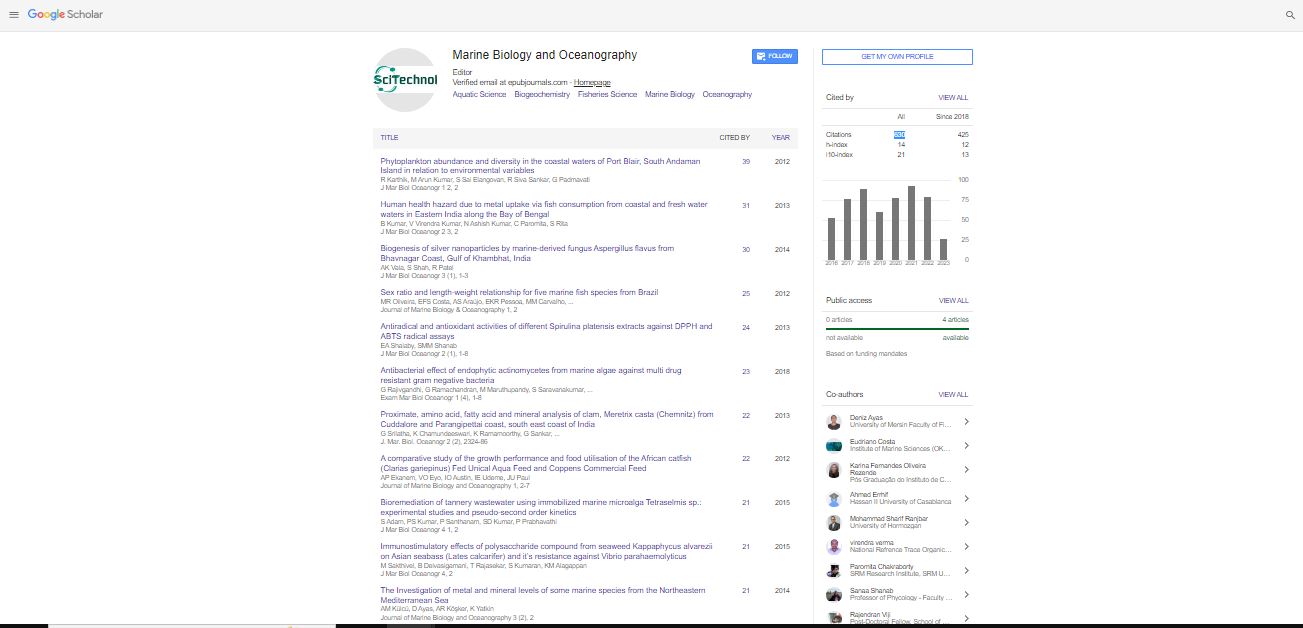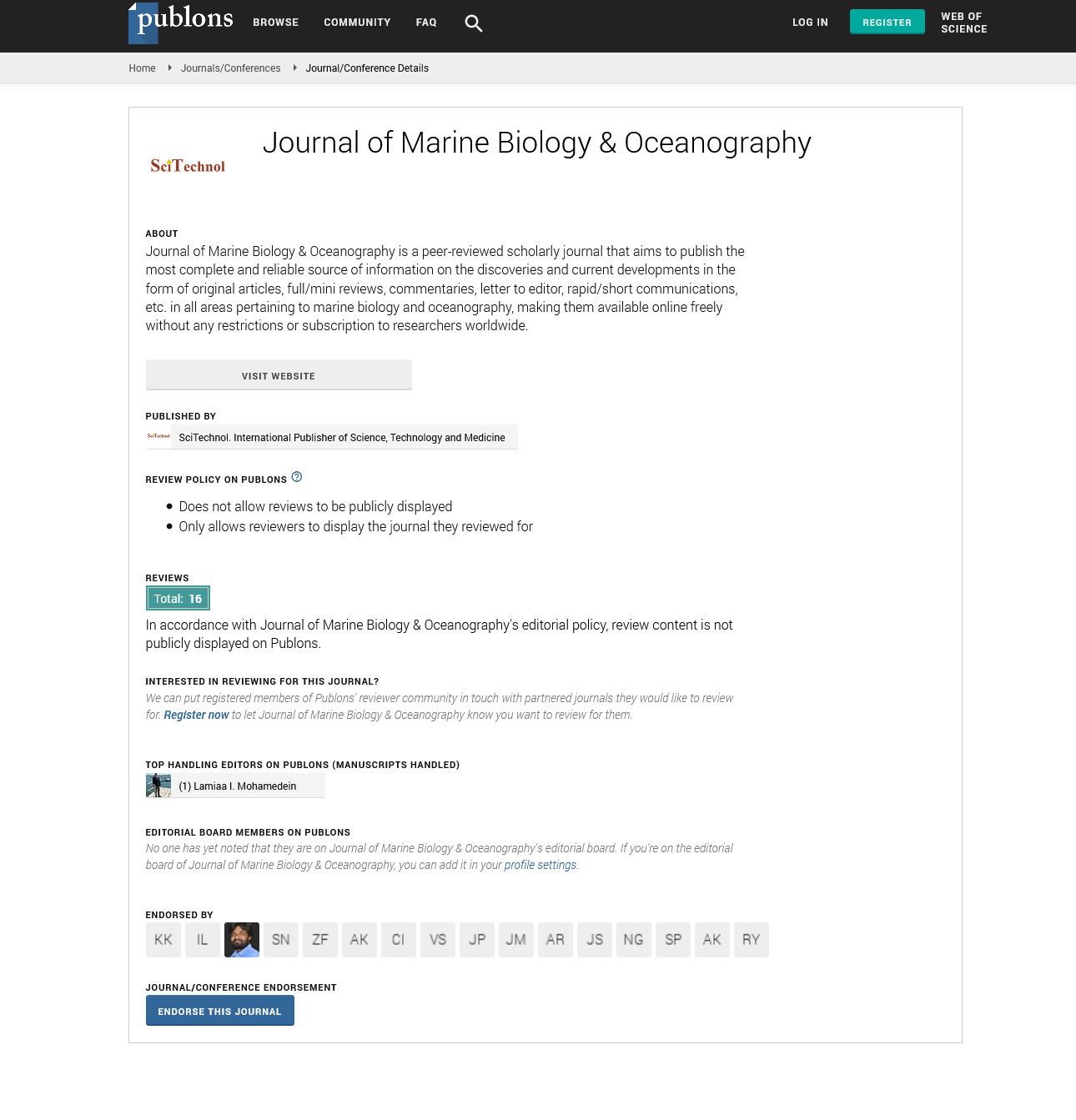Research Article, J Mar Biol Oceanogr Vol: 5 Issue: 2
Short-Term Effects of CO2-Induced Low pH Exposure on Target Gene Expression in Platynereis dumerilii
| Janine Wäge1,2, Silvia Rohr3, Jörg D Hardege1 and Jeanette M Rotchell1* | |
| 1School of Biological, Biomedical and Environmental Sciences, University of Hull, Cottingham Road, Hull, HU6 7RX, United Kingdom | |
| 2Leibniz Institute for Baltic Sea Research Warnemünde (IOW), Seestrasse 15, 18119 Rostock, Germany | |
| 3European Molecular Biology Laboratory, Heidelberg, Meyerhofstr. 1, 69117 Heidelberg, Germany | |
| Corresponding author : Jeanette M Rotchell School of Biological, Biomedical and Environmental Sciences, University of Hull, Cottingham Road, Hull, HU6 7RX, United Kingdom Tel: +44 (0)1482 465333 Fax: +44 (0)1482 465458 E-mail: j.rotchell@hull.ac.uk |
|
| Received: May 24, 2016 Accepted: June 29, 2016 Published: July 05, 2016 | |
| Citation: Wäge J, Rohr S, Hardege JD, Rotchell JM (2016) Short-Term Effects of CO2-Induced Low pH Exposure on Target Gene Expression in Platynereis dumerilii. J Mar Biol Oceanogr 5:2. doi:10.4172/2324-8661.1000155 |
Abstract
Short-Term Effects of CO2- Induced Low pH Exposure on Target Gene Expression in Platynereis dumerilii
Objective: Increasing atmospheric CO2 concentration are causing changes to the seawater carbonate chemistry, lowering the pH and we study potential impacts of these changes at the molecular level in a non-calcifying, marine polychaete species Platynereis dumerilii.
Methods: We investigate the relative expression of carbonic anhydrase (CA), Na+/H+ exchangers (NHE), and calmodulin (CaM) genes from P. dumerilii under acidified seawater conditions (pH 7.8) induced by CO2 using qPCR.
Results: mRNA expression of CA in the CO2-induced worms was significantly up-regulated at low pH conditions (pH 7.8, 1h), suggesting changes in acid-base balance. In contrast, the expression of NHE and CaM showed no significant change. In addition, we compare these results to a previous study using inorganic acid (HCl)-induced pH changes.
Conclusions: Results suggest that carbonate chemistry has an impact on gene expression that differs from pH-associated change. To our knowledge, this is the first study that compares low pH exposure experiments using HCl and CO2 as the inducing agents.
 Spanish
Spanish  Chinese
Chinese  Russian
Russian  German
German  French
French  Japanese
Japanese  Portuguese
Portuguese  Hindi
Hindi 
